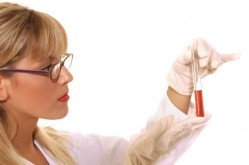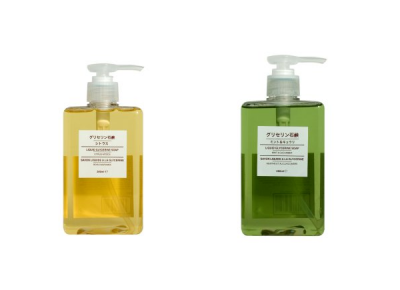China study suggests silicon dioxide can damage DNA

The study was reported on in FoodConsumer.org, which stated that the study suggests the material is genotoxic, meaning it can damage DNA.
Silicon dioxide is a nanoparticle that sees widespread use in cosmetics products, along with processed foods and nanomedicines, for its anti-caking properties; i.e., it stops powdered ingredients sticking together, making it a particularly popular ingredient in mineral make-up products.
Widely-considered harmless
If accurate, the recent study suggests there may be cause for concern about the use of silica in formulation; however, general scientific and health consensus to date has found the ingredient to be completely harmless.
The US Food and Drug Administration (FDA), World Health Organization (WHO) AND the European Food Safety Authority, for example, have all recognized silicon dioxide as a safe additive, and approve it for widespread use.
Indeed, a recent paper prepared in association with WHO indicated that the only negative health effects related to silicon dioxide have been caused by silicon deficiency, rather than the presence of it.
The study
The study, titled ‘Shape-Dependent Genotoxicity of Mesoporous Silica Nanoparticles and Cellular Mechanisms’, was carried out by a team of researchers in China and published in the March 2016 issue of the Journal of Nanoscience and Nanotechnology.
The team wanted to explore the toxicity of nanoparticles on a cellular level, and found that unlike other types of nanoparticle, mesoporous silica nanoparticles are able to “induce oxidative stress, leading to a large number of mitotic aberrations”, according to FoodConsumer.org.
It found that there was a difference in impact between the different types of silica nanoparticle, with rod-shaped silica nanoparticles found to be more damaging than sphere-shaped ones.






![Our round-up of the recent trend developments in the Asia Pacific beauty market. [Glow Recipe]](/var/wrbm_gb_food_pharma/storage/images/_aliases/wrbm_tiny/publications/cosmetics/cosmeticsdesign-asia.com/headlines/market-trends/what-s-trending-top-stories-on-apac-beauty-market-and-consumer-insights6/17758171-1-eng-GB/What-s-trending-Top-stories-on-APAC-beauty-market-and-consumer-insights.jpg)
![LG H&H is aiming to expand makeup brands Glint and Code with retail partner Guardian Singapore. [Glint]](/var/wrbm_gb_food_pharma/storage/images/_aliases/wrbm_tiny/publications/cosmetics/cosmeticsdesign-asia.com/headlines/brand-innovation/lg-h-h-aims-to-expand-glint-code-with-guardian-singapore-as-sales-take-off/17722297-1-eng-GB/LG-H-H-aims-to-expand-Glint-Code-with-Guardian-Singapore-as-sales-take-off.jpg)

![Bamboo vinegar demonstrated effects comparable to lauric and azelaic acid in inhibiting P. acnes. [Getty Images/FangXiaNuo]](/var/wrbm_gb_food_pharma/storage/images/_aliases/wrbm_tiny/publications/cosmetics/cosmeticsdesign-asia.com/headlines/formulation-science/bamboo-vinegar-found-to-have-similar-properties-to-lauric-azelaic-acid/17753950-1-eng-GB/Bamboo-vinegar-found-to-have-similar-properties-to-lauric-azelaic-acid.jpg)


![Guardian Singapore says it will debut 12 more beauty brands in stores. [Getty Images]](/var/wrbm_gb_food_pharma/storage/images/_aliases/wrbm_tiny/publications/cosmetics/cosmeticsdesign-asia.com/headlines/market-trends/guardian-singapore-set-to-debut-12-more-beauty-brands-as-it-aims-to-grow-younger-consumer-base/17722153-1-eng-GB/Guardian-Singapore-set-to-debut-12-more-beauty-brands-as-it-aims-to-grow-younger-consumer-base.jpg)
![The latest beauty news developments from made-in-Asia beauty brands such as Kao, Dr Jart+, Justhuman and more. [Dr. Jart+]](/var/wrbm_gb_food_pharma/storage/images/_aliases/wrbm_tiny/publications/cosmetics/cosmeticsdesign-asia.com/headlines/brand-innovation/kao-dr-jart-justhuman-and-more-news-from-asian-beauty-brands/17739964-1-eng-GB/Kao-Dr-Jart-Justhuman-and-more-news-from-Asian-beauty-brands.jpg)


